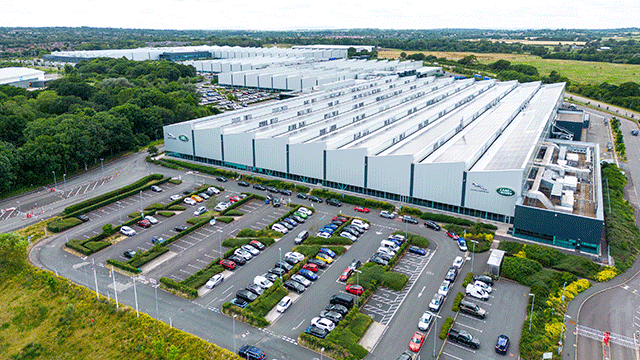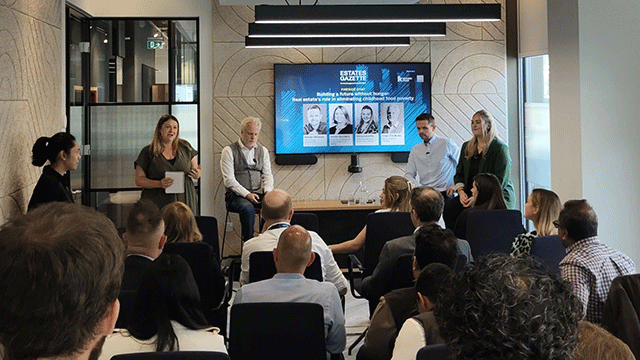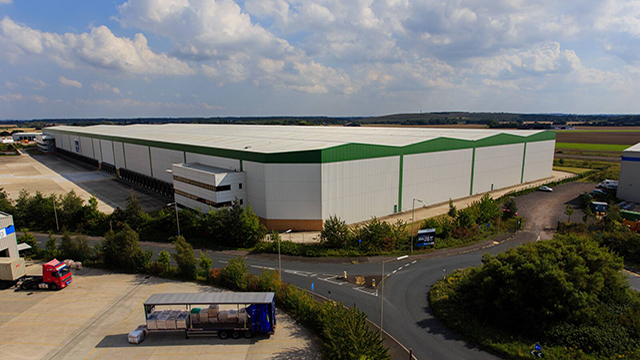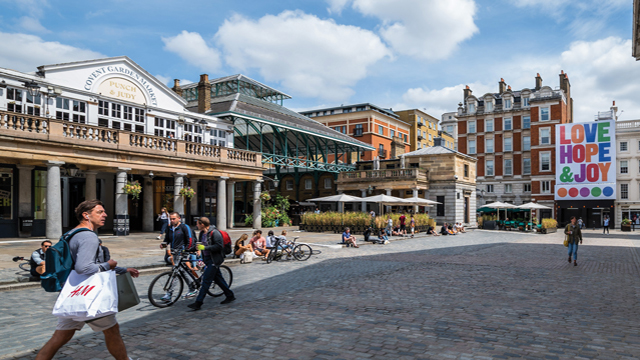Shifts in consumer behaviour triggered by new technology and social media are changing the retail landscape. Online retail sales are increasing and, in the UK, prominent high-street chains such as HMV, Jessops and Blockbuster have recently gone into administration.
The real estate sector is coming under increasing threat from technology developments, according to research by JP Morgan Cazenove, which states that many companies “underestimate the pace of change taking place in the retail space”.
Technical innovations such as shopping centre apps for mobile devices, virtual walls that display a retailer’s wares along with their barcode, and mobile POS (point of sale) need to be integrated in order for firms to remain competitive, believes the researcher.
More cautious
The new threats/challenges are making investors more cautious about retail property in 2013, according to CBRE’s European investor intentions survey. Nevertheless, shopping centres still top the list when it comes to retail investments.
As a result of this changing retail landscape many shopping centre investors such as mfi, ECE and Corio have devised new strategies to make their malls more attractive for customers, maintaining footfall for their tenants.
Essen-based shopping centre firm mfi Management für Immobilien has already started to make its malls fit for the future, beginning with the roll-out of a new multichannel shopping strategy. Multichannel shopping offers several ways for the consumer to purchase goods such as in a store, online or through the older-fashioned alternative, mail-order.
The company is currently developing the Mönchengladbach Arcaden shopping centre. The €200m project will comprise 35,000 m2 and is expected to be completed in the spring of 2014.
Mfi’s strategy allows shops to display their current offers online on interactive centre websites, on smart phones (via mobile applications) and through the use of social networks and multimedia information panels.
The company also provides free wifi hotspots in its malls to enhance the digital shopping experience. Marcus Hüttermann, board member at mfi, says: “We view our shopping centres as multidimensional, living marketplaces which are intended to offer all tenants and customers high added value.
“In addition to our professional analysis partners, such as Inforbiz, Innofact and the e-web research centre of the University of Mönchengladbach, we took up many suggestions, particularly from the two above-mentioned groups, for the implementation of all the projects so far – whether via the social networks or through personal and direct contact.
“In the meantime, we have expanded our digital service package to include exciting new offerings; we are in the process of preparing the roll-out and have long since already focused on the next phase of expansion.”
Mfi is not alone with this concept. Listed retail property investor Corio has also developed a new strategy for its shopping centres. This includes the integration of technical innovations to make it easier for people to connect with the malls.
Corio has devised an internal platform, called LaunchLab, which focuses on discovering strategies to support innovative ideas and boost revenues from other income streams. A result of the project is the customer relationship management system, Britelayer.
This establishes the principle that customers receive points for entering a mall, making purchases and sharing their experiences on social media platforms. The points awarded can then be exchanged for gifts. This year, Corio is planning to implement Britelayer services in various centres throughout its portfolio, following Le Gru, Campania and Alexandrium.
Smart phone app
Alessandro Gaffuri, centre manager of Corio’s Shopville Le Gru centre in the Italian city of Turin, says: “We’ve developed an app for smart phones – the centre has free wifi – which delivers shopping tips based on earlier purchases and restaurant visits. Le Pru is also now on Facebook, which is where our customers can communicate with each other, and with us. This makes Le Gru not only a real life, but also a virtual favourite meeting place.”
Using multichannel strategies is more important than ever for retailers to maintain sales. In Europe, online sales of multichannel retailers develop more strongly than sales from online specialists without real shops, according to a study by CBRE.
Sales of pure online and mail order retailers developed more slowly than expected in Q4 2012, while growth in online retail, which included multichannel retail, was considerable, the firm reports.
In the last quarter of 2012, retail sales fell by 1.1% but online and mail order sales grew by 6% in 27 member states of the European Union and 0.4% in the eurozone. In 2011, on the other hand, online and mail order sales increased by 9% across Europe.
In Italy, for example, online sales for purely online retailers in Q4 2012 increased by 1.9%, while total online sales rose by 10%. In addition, UK retailers with a multichannel presence showed a positive growth during the same period.
Over Christmas, British department store group House of Fraser recorded a sales increase of 6.3% while Debenhams’ sales grew by 3.9%. New Look, Argos, Paul Smith and White Stuff, all of which have a strong online presence, recorded solid growth.
On the other hand, sales at UK supermarket chain Morrisons, which does not offer online shopping, declined by 2.5%.
Among European retailers that recorded no growth in 2012, most were consumer electronics and electronic media with a strong presence on high streets but limited online shopping opportunities, according to CBRE findings. This shows that the threat of increasing online business for the stationary trade is quite real.
Shopping centre investor and manager, Hamburg-based ECE, believes stationary retail needs to demonstrate its strengths by, for example, linking to online mediums. When shopping offline, the immediate availability of the product is what counts, as well as the opportunity to touch and feel it, ECE says. Flagship stores and branch outlets produce brand awareness and customer loyalty. Online business is accelerated through physical stores, confirming the success of the multichannel strategy, CBRE says.
“The current phase of persistent low economic growth combined with structural changes in the retail business is creating a new hierarchy in which high quality multichannel retailers significantly increase their market share. However, retailers that also operate stationary shops have recorded significantly more growth than many pure online retailers. Even though consumers are increasingly well-versed in online shopping, a brand that is recognised on the high street or in a shopping centre increases customer loyalty,” says CBRE Germany’s head of retail, Karsten Burbach.
Burbach believes that in about two years, a large number of retailers will have transformed into fully integrated multichannel companies. Research indicates, he says, that despite increased online retail, there is no decline in the number of shops. For the next two years about 72% of retailers are planning to operate the same number of branches or to increase the number of outlets, according to CBRE. And more than half of the retailers plan to expand the size of their shops, said the firm.
Virtual signposting
This is good news for retail investors. ECE is currently testing new strategies – such as a virtual signposting system containing social media linkups and interactive platforms – at ECE-managed Alstertal shopping center in Hamburg and the Limbecker Platz in Essen. The concepts were developed from the results of a study published in February. Conducted by Roland Berger Strategy Consultants and ECE Projektmanagement, the study found that online retail is rising faster than expected. However, bricks-and-mortar retail remains the most important channel and customers are willing to pay extra for services that include being able to take their goods home straight away; receiving advice and information on the product; and being able to try the product before buying.
Among the ideas tried were a multi-media lounge where tablets and a 3D TV can be tested, a social check-in terminal on which customers can show their current location to friends, and a charging station for smartphones and tablets.
“We are using the results of our study, published in February, about the consumer behaviour in a multi-channel world and to introduce new interactive shopping experiences into our shopping centres,” says chairman of ECE management, Alexander Otto.
A major new shopping centre is Trinity Leeds, UK, owned and managed by Land Securities. The newly developed mall has an investment volume of £378m, and has 100 shops and 20 restaurants including H&M, Next and River Island on around 93,000 m2.
But it, too, has acknowledged the pressure from online sales and opened with a custom-made app available for shoppers to download and the latest interactive screen technology in the mall itself.










